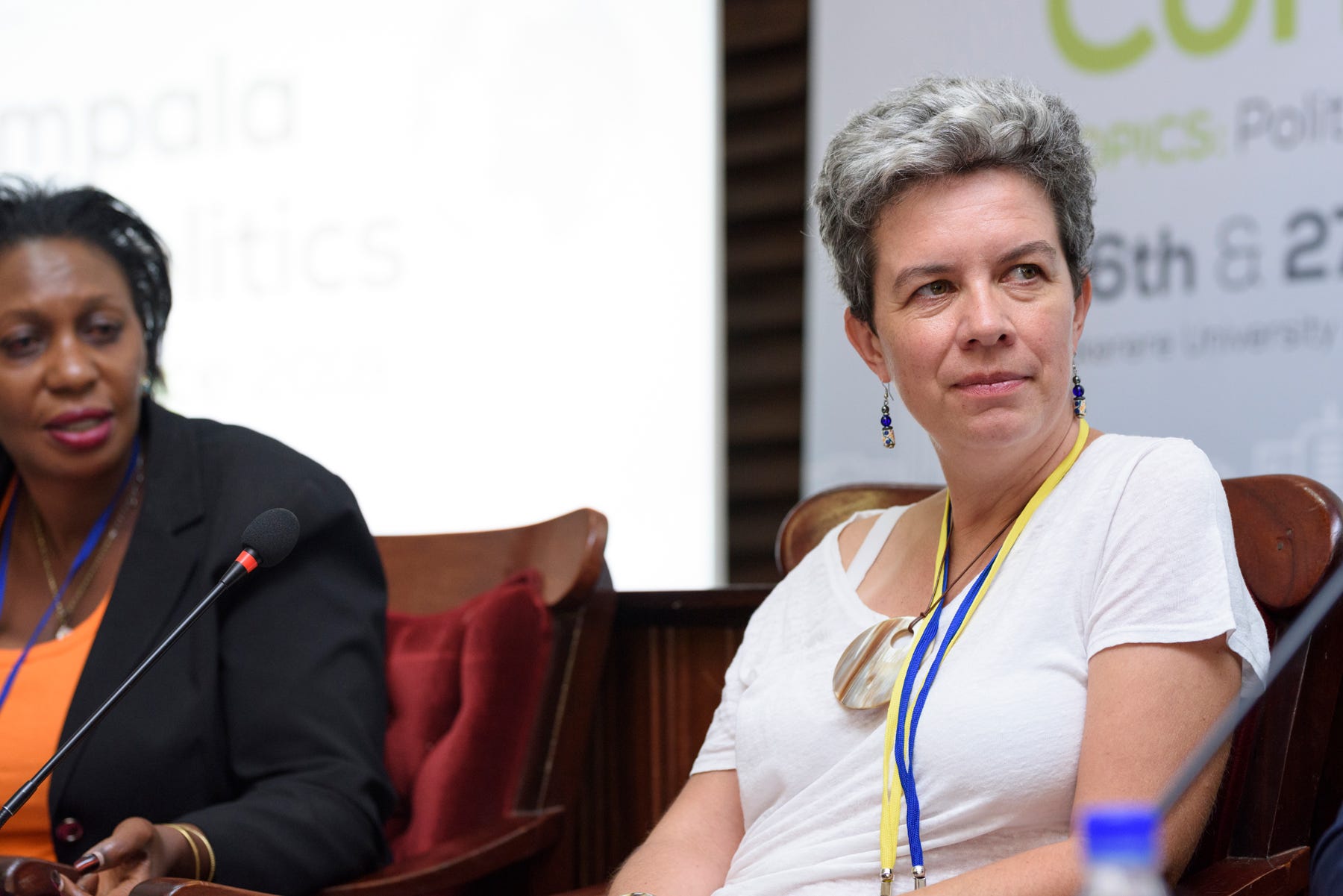
The Power of Food: Shall agriculture fill your stomach or your purse?
For centuries, agriculture has been the sole means of livelihood for many. Even today, several economies depend on agriculture as a key source of revenue. However, as the world modernizes, so has agriculture, as seen in the use of machines for largescale farming, fertilizers, pesticides and new seed varieties.
What does this mean for subsistence farmers? Shall agriculture fill your stomach or your purse? These questions were at the core of a panel discussion on the topic; The power of food; shall agriculture fill your stomach or your purse? at the Kampala Geopolitics Conference held at Makerere University on 26–27 October 2018.
Virginie Leroy, the Country Director for the Agence Francaise de Development in Uganda, said the choice of what we produce and how much of it, rests with us.
“We have the choice to decide what kind of food we want for ourselves and for the next generation.”
She decried the destruction of forests and soil degradation which she says affects agricultural production.

Leroy, who once worked for World Food Program, said small scale farmers are the ones feeding the population, and as such, there’s need to ensure their agricultural practices are friendly.
Agnes Kirabo, the Director, Food Rights Alliance, said the agriculture sector has the ability to fill every individual’s purse and bank accounts.
“Agricultural sector has potential because it has market. It has billions of mouths in the world to feed…It has potential to end poverty and transform economies.”
According to her, if agriculture was not profitable, those in the sector would have opted for other alternatives long ago. She, however, cautioned that as we place emphasis on agriculture for business, we should also ensure agriculture for food.
“We have the responsibility to make sure people are well fed,” Kirabo said.
Humphrey Mutaasa, the director of strategic partnerships at the Uganda National Farmers’ Federation, said for persons to benefit from agriculture twice (filling the stomach and purse), investing time in it is paramount.

According to Mutaasa, other African countries like Malawi and Tanzania, people invest more time in agriculture, which is not the case here, and we end up earning less.
“Here in Uganda, you go to the garden in the morning at 6am and come out at 10am. Your purse will not be filled up. The reason why our offices are developing and filling our purses is because we go at 8 am and leave at 6 pm,” Mutaasa said.
“Who told you to leave your office called agriculture at 10 am? And you want your purses to be filled? For us we want things free of charge. We ask: ‘when is government giving us subsidies?’ Who told you these people whose purses are filled through agriculture are given free things?”
He said those who already got their purses filled through agriculture should share how they did it.
The panelists warned that unless the tendency of doing things for the sake of it is done away with, most developing countries will continue seeking assistance for food and other necessities from the outside world.
Agriculture continues to be the backbone of many developing countries especially in Africa. In Uganda, the agricultural sector employs more than 80 percent of the workforce and accounts for 90 percent of export earnings.
